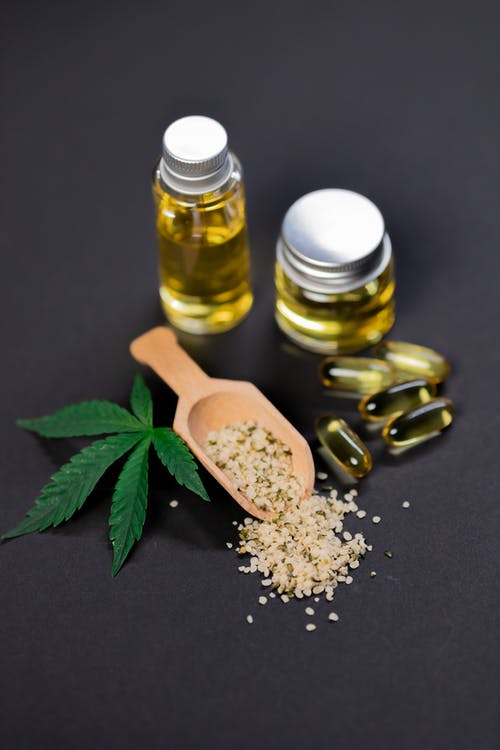Essential guide to understanding cannabis concentrates

Flower normally has a THC content that ranges from 10 per cent to 25 percent, but concentrated products in the U.S. can exceed 80 per cent.
As the marijuana business continues to grow, the methods of weed consumption seem to evolve just as quickly. Flower cannabis represents only a small portion of most dispensary retail operations in the U.S. And as time goes on, concentrates are becoming more popular and diverse.
As this niche market begins to outsell other marijuana products, it is important to understand exactly what marijuana concentrates are.
What are cannabis concentrates?
Concentrates are just that, concentrated forms. There are several methods, but every form of concentrate represents much more potent THC or CBD content than its flower counterpart. Flower normally has a THC content that ranges from 10 per cent to 25 per cent, but concentrated products in the U.S. can exceed 80 per cent.
The way a concentrate is extracted or made affects the final product; it also affects how it is consumed. Some concentrates are smoked, some are vaporized, some can be applied to the skin and others are eaten or drunk.
Common forms of concentrates
There is a long list of concentrates on the market currently, and the list will likely continue to grow as other niche markets continue to form. There are several concentrate varieties that are popular and worth noting as a starting point of knowledge for those wanting to learn more.
Hash
Hash is the “OG” concentrate. It has been enjoyed for centuries and has made quite a comeback with the boom of concentrates. Hash is typically fragrant and is often pressed into a dense ball before consumption.
Shatter
Live resin
Live resin is extracted directly from a fresh flower after it is flash-frozen. This method preserves a lot of the cannabis aroma and terpenes so it is a great choice for those who love that rich marijuana flavour.
Rosin
Rosin is a common concentrate that many people create themselves using fresh flower, a hair straightener and parchment paper. It has become wildly common recently as it is accessible and easy to create.
Wax
Wax, or dab wax, is possibly the stickiest form of concentrate. Dabs are concentrated doses — typically about the size of a Tic-Tac breath mint — of cannabis. Dabs are manufactured by extracting THC, most commonly by using a solvent such as butane. The end product is a potent oil often referred to as wax, honey, shatter, budder, crumble or butane hash oil (BHO).
Crumble
Crumble is formed from wax. Once in wax form, if it goes into a vacuum or drying process, it turns into crumble. Crumble can be formed or broken into pieces for dabbing.
Oils
Cannabis concentrates also come in oil form. The most common packaging is in a syringe (for topical use or ingestion) or in cartridge form. Oil is commonly used in e-cigarette-style vape devices, producing a similar vapour to that of an e-cigarette, only infused with concentrated THC.
Tinctures
Tinctures are alcohol-based marijuana concentrates. Tinctures are growing in popularity as THC cocktails gain popularity. Tinctures are commonly ingested orally using a dropper, and can be added to food or beverage as well.
Are concentrates safe?
Concentrates should certainly be handled carefully. Just like with any form of THC, one should carefully research and monitor their consumption.
If all precautions are taken, a concentrate can be a great way to enjoy marijuana. In fact, its concentration can help dosing more precisely.
Instead of “guessing” the effect of smoking one joint, a user can have a strong understanding of the effect of one drop of tinctures or oil. As always, be sure to err on the side of caution when trying highly concentrated marijuana.
A 2020 study, conducted by researchers at the University of Colorado Boulder, suggested that although THC levels increase significantly in those who consume concentrates, boosting blood levels of THC more than twice as much as smoking conventional weed, the effects of the drug itself were not necessarily significantly greater.
According to co-author Kent Hutchison, a professor of psychology and neuroscience at the university who also studies alcohol addiction, the study does not apply to inexperienced users, who should still be extremely cautious with concentrates.
“Does long-term, concentrated exposure mess with your cannabinoid receptors in a way that could have long-term repercussions? Does it make it harder to quit when you want to?” asked Hutchison. “We just don’t know yet.”
420 Intel is Your Source for Marijuana News
420 Intel Canada is your leading news source for the Canadian cannabis industry. Get the latest updates on Canadian cannabis stocks and developments on how Canada continues to be a major player in the worldwide recreational and medical cannabis industry.
420 Intel Canada is the Canadian Industry news outlet that will keep you updated on how these Canadian developments in recreational and medical marijuana will impact the country and the world. Our commitment is to bring you the most important cannabis news stories from across Canada every day of the week.
Marijuana industry news is a constant endeavor with new developments each day. For marijuana news across the True North, 420 Intel Canada promises to bring you quality, Canadian, cannabis industry news.
You can get 420 Intel news delivered directly to your inbox by signing up for our daily marijuana news, ensuring you’re always kept up to date on the ever-changing cannabis industry. To stay even better informed about marijuana legalization news follow us on Twitter, Facebook and LinkedIn.




